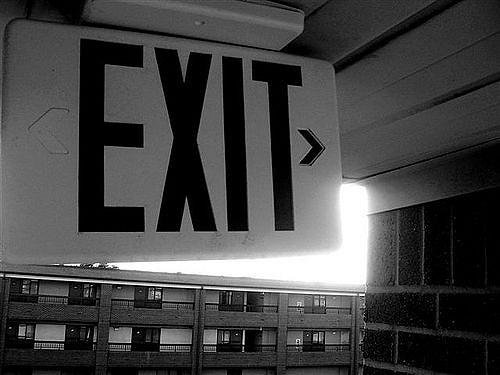Unprofessional Ways to Quit a Job
Have you been frustrated with your company? Have your duties shifted over the full years derailing the direction your career was supposed to go? Do you are feeling you ought to be making additional money for the amount of work you're doing? Has your employer cut your benefits? Or, on the plus side, you have the perfect opportunity you do not want to avoid.
Those are just a small number of explanations why people might contemplate quitting their jobs. Whatever the good reason, it is important to give consideration to the approach taken when your choice to leave a posture has been made. For many people, often the known reasons for quitting are due to either an improved opportunity or some unfavorable circumstances that cause unhappiness. If true discord exists, it is tempting to give up with no considered how your actions are perceived because the anger and/or unsettling feelings have a tendency to dominate the problem.

In the circumstances encompassing the resignation no matter, it's important to take into account the true way you tackle giving up. When you choose to leave, it's important not to give attention to any negativity and instead think proactively about how precisely all of your actions could get back to haunt you later. Probably in a manner that wasn't anticipated.
While there are occasions in life when it's essential to quit employment, leaving a position is not the most nice or easiest task always. However, it is sometimes the best answer. There are numerous bad ways to give up a job, but here are some of the worst approaches an individual can take:
Giving No Notice
Getting into work and announcing it is your last day is an awful way to give up a job. This is because leaving a working job without notice influences many other people. Your former employer does not have any replacement, colleagues are burdened with picking right up the slack from your absence, and customers or clients have problems with devoid of a contact person if you are their designated employee. It really is considered unprofessional also. Leaving employment without providing ample notice (usually about fourteen days is customary) won't bode well if a fresh possible employer calls to verify employment or even to get yourself a reference. 2
Burning Bridges
If an employer has led an unhealthy environment, been neglectful, inconsiderate, or abusive even, it could be tempting to inform them off when you choose to quit simply. This process cuts all ties and burns the proverbial bridges essentially. While tempting, it may be beneficial rarely.

Rarely, if, is it smart to lose bridges and leave employment over a bad be aware. For example, you never know if you'll desire a reference, or if you work in a particular niche-oriented industry, you can remove yourself from being considered for future job opportunities unknowingly. Also, retain in mind that some managers or colleagues may leave someday too and conclude being your boss someplace else.
Or, consider today's business environment is one where many companies partner up or bought out by others. Even though you think you may never work for a business or a person again, things will come back full circle at a later time through unexpected circumstances so you finish up doing work for the same management again. If this occurs, you're destined to conclude regretting your activities because they could negatively have an impact on further development in your job.
Even though you are extensively disgusted with employment, you need to make every try to take the high highway, leave with dignity and stay professional. You're better off writing a notice and that means you can clear yourself of any bad emotions, and shredding it then. Even when your anger or disgust is justified, be proactive and keep maintaining a known degree of professionalism and reliability when you give up.
Stop showing up
Simply not turning up for work once you choose to call it quits is a terrible way to leave employment. When this occurs, the workplace does not have any notice which too can have a ripple influence on many people. Bosses and colleagues won't know why you stopped coming which may lead to others worrying, calling your home and/or cause resentment. On top of that, this just about guarantees you may never have the ability to ask anyone out of this job to be always a reference.

Bashing Company on Interviews
In the event that you leave your task with an even of professionalism and reliability even, give notice and do not melt away any bridges. How you conduct yourself after you leave is as important as when you resigned just. A question job interviewers ask is "Why did you leave your last position?" Continually be careful how you will answer this question. Even whether it's tempting to bad-talk the work you left, it certainly is best to avoid carrying out this and instead think of a neutral answer, or the one that reflects career goals rather than how you really feel. By bashing your former (or current) employer, you present yourself in an awful light and can limit your own future job opportunities. Business employers will probably dispose of resumes from individuals who have negative remarks about job exits immediately after the interview.
Giving up employment is never a great potential customer, but you need to avoid any negative ways to give up a job. Thoughts can resolve as time passes, but earlier activities can't be altered or undone. Better to restrain from the negativity and leave off on the good note. Your job will many thanks later on.
Yea that stop showing up erks me:)
Too many people in this world are unprofessional it scares me to think what its going to turn in to later. If you have a job you do not like then get a new one but please provide some notice before you leave.
the law of camal does exist. cos what goes around comes around